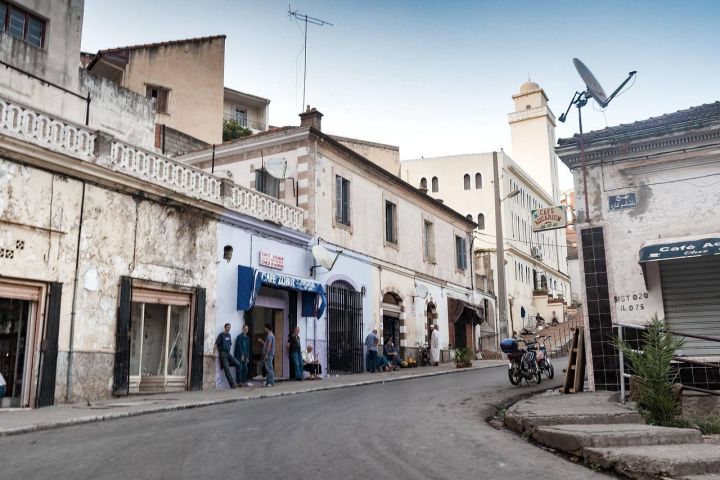
The People's Democratic Republic of Algeria has officially become a party to the Hague Convention Abolishing the Requirement of Legalisation for Foreign Public Documents (the Apostille Convention).
The importance of an apostille
The use of documents issued in one country on the territory of another has long been a challenging task. Foreign authorities could, at their discretion, accept them or not. The introduction of the consular legalisation procedure at the international level partially alleviated this problem. This procedure requires a document to be certified first by a specially authorised body in the country of origin (most often the Ministry of Foreign Affairs or the Ministry of Justice) and then by the consulate or consular section of the embassy of the destination country.
However, consular legalisation is quite a complex, lengthy procedure that requires multiple payments of various fees. Therefore, in private international law, it has gradually been replaced by apostille. Its introduction began within the framework of the Hague Conference on Private International Law in 1961, following the signing of a special convention.
An apostille is an internationally standardised form for certifying the legality of a document for use in the territories of states that recognise this type of legalisation. It usually appears as a special stamp or certificate. However, in recent years, the electronic apostille (e-Apostille) has also become widespread — a special digital mark confirming the authenticity of documents issued in digital form.
For the authorities of any state that is a party to the Convention, placing an apostille on a document they have issued is sufficient for it to be accepted, without additional legalisation, by all other countries that have ratified this international act.
Using an apostille is clearly more convenient than consular legalisation. However, a number of countries, for political, legal, or other reasons, did not join the Convention for a long time. At various stages, this included such major states as China, Canada, and Saudi Arabia.
As Schmidt & Schmidt previously reported, recent years have seen a wave of accessions to the Hague Convention worldwide. In 2019, the Convention entered into force for the Cooperative Republic of Guyana and the Philippines; in 2020 — for Palau and Jamaica; in 2022 — for Indonesia and Saudi Arabia; in 2023 — for Senegal, Pakistan, and China; in 2024 — for Rwanda and Canada; and in 2025 — for Bangladesh.
Indonesia has also become a kind of “ambassador” for apostillisation. Its authorities are actively encouraging countries that are not yet parties to the Convention to join. Malaysia, Egypt, Thailand, and Ghana are currently in negotiations on implementing apostillisation.
How Algeria is implementing apostille
Algeria is a country whose nationals form large diasporas abroad. Around 4 million Algerians live in France alone, and about three million more live in other countries. These people regularly need to use Algerian documents abroad, and consular legalisation consumed significant time, effort, and money.
Therefore, accession to the Apostille Convention was an extremely urgent issue for Algeria. President Abdelmadjid Tebboune signed the relevant decree.
The publication of Presidential Decree No. 25-217, granting our country the right to accede to the Hague Convention of 5 October 1961, is a crucial step
— commented Sofiane Chaïb, State Secretary of the Algerian Ministry of Foreign Affairs.
And on 5 November 2025, the Algerian authorities took the decisive step towards accession to the Convention — they submitted the relevant documents for deposit (this role is performed by the Ministry of Foreign Affairs of the Netherlands).
Algeria was represented at the ceremony by: Her Excellency Ms Salima Abdelhak, Ambassador to the Netherlands; Ms Amina Boukreta, Minister-Counsellor of the Algerian Embassy; and Mr Mezegich Walid, Foreign Affairs Attaché of the Algerian Embassy. From the Dutch Ministry of Foreign Affairs, the ceremony was attended by Mr Jules van Eindhoven, Head of the Treaty Division; Mr Stefan Hessels and Ms Margot Heuizing, Legal Officers of the Treaty Division; and Ms Maaike Wierema, Policy Officer of the North Africa and Middle East Department. The Permanent Bureau of the Hague Conference on Private International Law was represented by its Secretary General, Dr Christophe Bernasconi, and Legal Officer Mr Caio Gomes de Freitas.
Algeria has become the 128th party to the Apostille Convention. It will enter into force in the country on 9 July 2026.
The Algerian Embassy in the Netherlands stated that accession to the Convention reflects “President Tebboune’s ambition to modernise public administration and combat bureaucracy, while at the same time simplifying the process of verifying the authenticity of documents for citizens”.
According to the leadership of the diplomatic mission, the introduction of apostillisation will help strengthen “cooperation between Algeria and its international partners within the framework of the Hague Conference on Private International Law”.
Initially, the authority to issue apostilles in Algeria will be divided among the ministries of the interior, justice, higher education, national education, and vocational education.
What is an apostille?
What is an apostille? Why do I need an apostille? How do I get an apostille? - Our video will explain everything you need to know about the apostille. If you have a document that needs to be certified with an apostille for use abroad, Schmidt and Schmidt will assist you! We provide apostille services in more than 100 countries worldwide.





